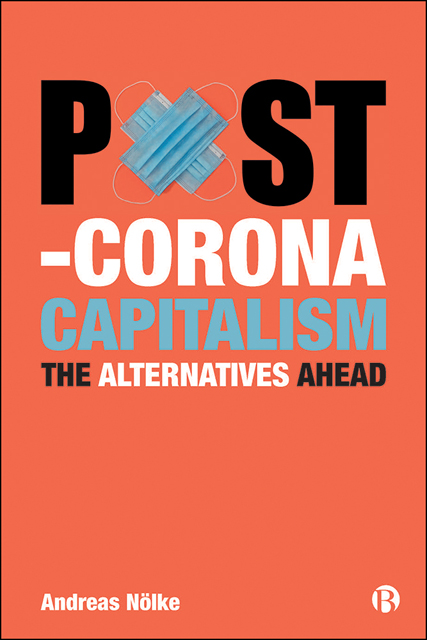Book contents
- Frontmatter
- Dedication
- Contents
- List of Abbreviations
- Acknowledgements
- Preface
- 1 Introduction: Confronting a Multidimensional Crisis of Capitalism
- Part I Capitalism and Society
- Part II Domestic Institutions of Capitalism on the Demand Side
- Part III Domestic Institutions of Capitalism on the Supply Side
- Part IV The International Institutions of Capitalism
- Part V Anthropocene Capitalism
- Part VI Geo-economic Shifts in Global Capitalism
- Part VII Ideologies in Contemporary Capitalism
- References
- Index
13 - Finance: Fragile or Stable?
Published online by Cambridge University Press: 13 October 2022
- Frontmatter
- Dedication
- Contents
- List of Abbreviations
- Acknowledgements
- Preface
- 1 Introduction: Confronting a Multidimensional Crisis of Capitalism
- Part I Capitalism and Society
- Part II Domestic Institutions of Capitalism on the Demand Side
- Part III Domestic Institutions of Capitalism on the Supply Side
- Part IV The International Institutions of Capitalism
- Part V Anthropocene Capitalism
- Part VI Geo-economic Shifts in Global Capitalism
- Part VII Ideologies in Contemporary Capitalism
- References
- Index
Summary
In contrast to the 2008/09 Great Recession, the Northern financial sector was not the origin of the coronavirus recession. Still, it has been massively affected by the recession, although the emergency rescue operations by the central banks have avoided a major damage during the early phase of the crisis by providing massive injections of liquidity into the financial system. Still, its medium-term stability is not warranted, given the large number of highly indebted companies in the Global North as well as in the Global South in particular. A large number of credit defaults may create additional stress for banks and those non-banks that have acquired related financial assets. Given the strong transnational interconnectedness within the financial sector, these problems will not be limited to single economies but can easily spread globally, as witnessed during the GFC. How is potential destabilization of the financial sector possible in spite of the regulatory flurry of the previous decade that was meant to prevent a repetition of a major financial crisis? Scholarship on financialization in Political Economy is able to answer this question. The regulatory measures put in place after the last crisis did not reduce the strongly increased – and potentially highly fragile – role of the financial sector, but were limited to ironing out some of its more obvious inconsistencies. This raises the question whether post-coronavirus financial sector regulation should continue this path or opt for a substantial shrinking and national compartmentalization of the financial sector altogether.
Finance in different models of capitalism
The traditional ‘Varieties of Capitalism’ approach in Comparative Political Economy distinguishes between the financial market-based systems in Liberal Market Economies (LMEs) and the bank-based systems in Coordinated Market Economies (CMEs) (Hall and Soskice, 2001). Whereas the LME model is assumed to be able to quickly mobilize large volumes of finance for radical innovations, the CME model is assumed to have its strength in patient finance for long-term incremental innovations (Clift, 2014: 230–56; Menz, 2017: 146–77; Vermeiren, 2021: 147–73). The extension of this approach to emerging economies adds two alternatives for company finance: on the one side, the dependence on foreign direct investments and on foreign banks in the Eastern European Dependent Market Economy (DME) model (Nölke and Vliegenthart, 2009);
- Type
- Chapter
- Information
- Post-Corona CapitalismThe Alternatives Ahead, pp. 84 - 90Publisher: Bristol University PressPrint publication year: 2022

